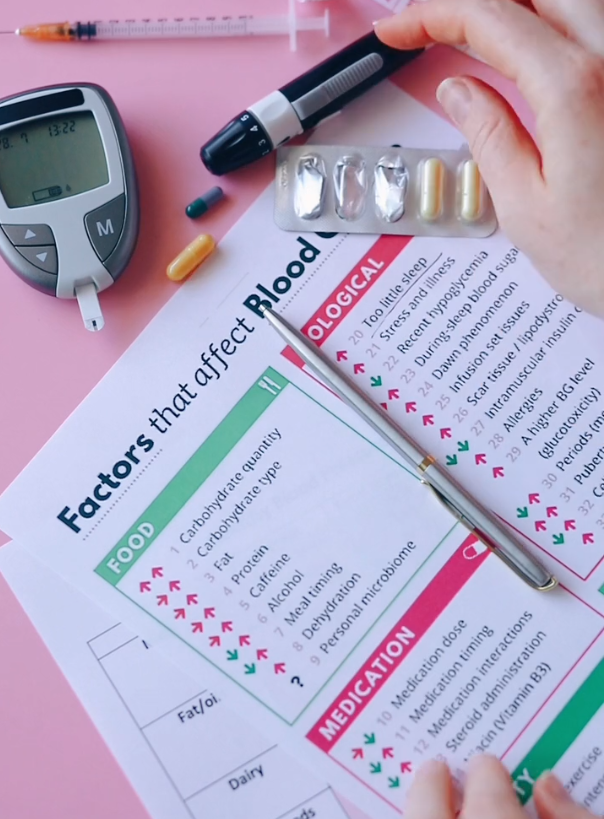The Importance of Nutrition in Enhancing Mental Health and Well-being

In the pursuit of a happy and fulfilling life, mental health and well-being play a vital role. Our mental state impacts every aspect of our lives, influencing how we think, feel, and behave. While various factors contribute to mental well-being, one often overlooked aspect is nutrition. The food we eat not only fuels our bodies but also has a profound impact on our mental health.
Research has shown a strong connection between nutrition and mental health. A balanced and nutrient-rich diet can help alleviate symptoms of anxiety, depression, and stress while enhancing cognitive function and emotional stability. In this blog post, we will explore the significance of nutrition in promoting mental health and well-being and address essential questions to provide a comprehensive understanding of this crucial topic.
The Connection between Nutrition and Mental Health
The age-old saying, "You are what you eat," holds true when it comes to mental health. Our brain relies on a steady supply of essential nutrients to function optimally. The foods we consume influence the structure and function of our brain, impacting neurotransmitters, hormones, and neural pathways associated with mood regulation and cognitive performance.
A Diet's Impact on Neurotransmitters
A diet lacking in vital nutrients may leave the brain vulnerable to chemical imbalances and oxidative stress, increasing the risk of mental health disorders. On the other hand, a diet rich in nutrients can support brain health and foster emotional resilience. To better understand this connection, let's explore how nutrition affects mood and emotions.
How Nutrition Affects Mood and Emotions

The food we eat not only affects our physical health but also has a significant impact on our emotional well-being. Nutrients such as omega-3 fatty acids, vitamins, minerals, and amino acids play essential roles in neurotransmitter synthesis and regulation. Neurotransmitters are chemical messengers that transmit signals between nerve cells, influencing mood, emotions, and behavior.
The "Happy Hormone" Serotonin
For instance, serotonin, often referred to as the "happy hormone," is influenced by the amino acid tryptophan found in protein-rich foods. Serotonin helps regulate mood, appetite, and sleep patterns. Low levels of serotonin have been linked to depression and anxiety, emphasizing the importance of consuming adequate protein in our diet.
The Impact of Omega-3 Fatty Acids
Moreover, omega-3 fatty acids, commonly found in fish and nuts, are crucial for brain health. They have been associated with a reduced risk of depression and other mood disorders. The brain's gray matter, responsible for memory and emotion, also benefits from omega-3 intake. A deficiency in these essential fatty acids can lead to cognitive decline and emotional instability.
Specific Nutrients for Good Mental Health
These are just a few examples of how nutrition directly influences our mood and emotions. Consuming a well-balanced diet ensures that our brain receives the necessary nutrients to support optimal mental health. Next, let's delve into specific nutrients that play a key role in promoting good mental health.
Examples of Nutrients for Mental Well-being
- Serotonin Boosters: As mentioned earlier, serotonin is a neurotransmitter that plays a crucial role in regulating mood and emotions. Consuming foods rich in tryptophan can help boost serotonin levels in the brain. Some examples of tryptophan-rich foods include turkey, chicken, eggs, nuts, seeds, and tofu.
- Omega-3 Fatty Acids: Omega-3 fatty acids, particularly EPA and DHA, are essential for brain health and are known for their mood-enhancing properties. Fatty fish like salmon, mackerel, and sardines are excellent sources of omega-3s. For plant-based options, flaxseeds, chia seeds, and walnuts are good choices.
- B Vitamins: B vitamins, especially B6, B12, and folate, play a vital role in neurotransmitter synthesis. They help convert amino acids into mood-regulating neurotransmitters like serotonin and dopamine. Foods rich in B vitamins include leafy greens, legumes, fortified cereals, and lean meats.
The Connection Between Nutrition and Mental Health
What is the connection between nutrition and mental health?
The connection between nutrition and mental health is strong and multifaceted. The food we eat directly influences the structure and function of our brain. Essential nutrients obtained from a balanced diet play a crucial role in neurotransmitter synthesis, hormone regulation, and overall brain health. A deficiency in key nutrients can lead to chemical imbalances and oxidative stress, increasing the risk of mental health disorders. Conversely, a nutrient-rich diet supports optimal brain function, enhances emotional well-being, and helps prevent mental health issues.
How does nutrition affect mood and emotions?
Nutrition significantly impacts mood and emotions through its influence on neurotransmitters, the brain's chemical messengers. For instance, tryptophan, an amino acid found in protein-rich foods, contributes to the synthesis of serotonin, a neurotransmitter known as the "happy hormone." Serotonin regulates mood, appetite, and sleep patterns. Omega-3 fatty acids, present in fish and nuts, are essential for brain health and have been associated with a reduced risk of depression and mood disorders. Consuming a balanced diet ensures that the brain receives the necessary nutrients to promote stable mood and emotional well-being.
Specific Nutrients for Mental Well-being
Which nutrients are essential for promoting good mental health?
Several nutrients are essential for promoting good mental health:
a. Omega-3 Fatty Acids: Found in fatty fish (salmon, mackerel), walnuts, and flaxseeds, omega-3 fatty acids are vital for brain health, reducing the risk of depression and cognitive decline.
b. B Vitamins: B vitamins, including B6, B12, and folate, support neurotransmitter synthesis and help regulate mood. They can be found in leafy greens, legumes, and fortified cereals.
c. Antioxidants: Foods rich in antioxidants, such as fruits and vegetables, help combat oxidative stress in the brain and protect against mental decline.
d. Amino Acids: Amino acids, the building blocks of proteins, influence neurotransmitter production. Tryptophan, for example, helps synthesize serotonin, contributing to positive mood.
e. Magnesium: Magnesium is essential for nerve function and relaxation, promoting a sense of calm. It can be found in nuts, seeds, and leafy greens.
f. Zinc: Zinc is involved in neurotransmitter regulation and has been linked to improved mood. It can be obtained from whole grains, legumes, and dairy products.
g. Vitamin D: Vitamin D plays a role in brain development and function. Exposure to sunlight and fortified foods are good sources of vitamin D.
Ensuring an adequate intake of these nutrients through a balanced diet supports mental well-being.
The Impact of Nutrition on Mental Health Disorders
Can a balanced diet reduce the risk of mental health disorders?
Yes, a balanced diet can help reduce the risk of mental health disorders. Consuming a variety of nutrient-rich foods supports brain health and function, which, in turn, can enhance emotional resilience and reduce the likelihood of developing mental health issues. Studies have shown that individuals who follow a Mediterranean-style diet, rich in fruits, vegetables, whole grains, fish, and healthy fats, have a lower risk of depression and other mental health disorders. Adopting a balanced diet along with other healthy lifestyle habits can significantly contribute to better mental well-being.
The Role of Gut Health in Mental Well-being
What role does gut health play in mental well-being?
Gut health plays a vital role in mental well-being, and the gut-brain axis is an essential communication pathway between the two. The gut houses trillions of bacteria known as the gut microbiota, which play a crucial role in digestion and the production of certain neurotransmitters. This gut-brain connection influences mood, emotions, and cognitive function.
For instance, the gut microbiota can produce neurotransmitters such as serotonin and GABA, which have a significant impact on mood regulation. A healthy gut microbiome is associated with better mental health and may reduce the risk of anxiety and depression. Consuming probiotics and prebiotics, found in fermented foods and high-fiber items, can promote a diverse and healthy gut microbiota, supporting mental well-being.
Nutrition as a Complementary Mental Health Treatment
Can nutrition complement traditional mental health treatments?
Nutrition can complement traditional mental health treatments by supporting overall well-being and improving treatment outcomes. While nutrition alone cannot replace professional care, it can be an essential component of a comprehensive approach to mental health management. A well-balanced diet can help stabilize mood, enhance cognitive function, and promote emotional resilience.
For individuals receiving therapy or medication for mental health disorders, a healthy diet can enhance the effectiveness of these treatments. Proper nutrition may also help manage potential side effects of certain medications. It is important for individuals to work with healthcare professionals to develop a personalized treatment plan that includes both conventional therapies and dietary strategies for optimal results.
Foods to Limit for Better Mental Health

Are there any foods that should be avoided for better mental health?
While a balanced diet is crucial for mental health, some foods may be best consumed in moderation or avoided altogether:
a. Sugary and Processed Foods: High sugar intake and processed foods have been linked to increased inflammation and may negatively impact mood and cognitive function.
b. Trans Fats: Trans fats, commonly found in processed and fried foods, are associated with a higher risk of depression and cognitive decline.
c. Excessive Caffeine: While moderate caffeine consumption may have some benefits, excessive caffeine can lead to anxiety and disrupt sleep patterns.
d. Alcohol: Excessive alcohol consumption can interfere with neurotransmitter function and worsen symptoms of depression and anxiety.
e. Artificial Sweeteners: Some artificial sweeteners have been linked to adverse effects on gut health, which can indirectly impact mental well-being.
The Connection between Nutritional Deficiencies and Mental Health
Can nutritional deficiencies lead to mental health issues?
Yes, nutritional deficiencies can contribute to mental health issues. A lack of essential nutrients can lead to chemical imbalances in the brain and compromise overall brain function. For example, deficiencies in omega-3 fatty acids, B vitamins, zinc, magnesium, and vitamin D have been associated with an increased risk of depression, anxiety, and other mental health disorders.
It is essential to maintain a well-balanced diet to ensure the body and brain receive the necessary nutrients for optimal functioning and mental well-being.
Tips for Maintaining a Healthy Diet for Mental Well-being
What are some tips for maintaining a healthy diet to support mental well-being?
Maintaining a healthy diet to support mental well-being involves adopting sustainable and mindful eating habits:
a. Plan Balanced Meals: Aim to include a variety of food groups in each meal to obtain a wide range of nutrients.
b. Eat Mindfully: Pay attention to hunger and fullness cues while eating, and avoid distractions like screens during meals.
c. Limit Processed Foods: Choose whole, unprocessed foods whenever possible to maximize nutrient intake.
d. Snack Smartly: Opt for nutrient-rich snacks, such as fruits, nuts, or yogurt, to keep energy levels stable.
e. Cook at Home: Preparing meals at home gives you more control over ingredients and portion sizes.
f. Stay Hydrated: Drink enough water throughout the day to support overall brain function.
g. Seek Professional Guidance: If needed, consult a registered dietitian or nutritionist to develop a personalized dietary plan.
Nutrition's Impact on Mental Health and Well-being
How can nutrition improve mental health and well-being?
Nutrition can significantly improve mental health and well-being by providing the essential building blocks for optimal brain function. A well-nourished brain is better equipped to regulate mood, manage stress, and cope with life's challenges. Here are some ways in which nutrition positively impacts mental health:
a. Stress Reduction: Certain nutrients, like magnesium and vitamin C, play a role in reducing stress hormone levels. A diet rich in these nutrients can help individuals feel more relaxed and better able to cope with daily stressors.
b. Cognitive Function: Nutrients such as omega-3 fatty acids and antioxidants support cognitive function and memory. Including these nutrients in the diet can enhance focus, concentration, and mental clarity.
c. Emotional Resilience: A balanced diet provides the body with the resources it needs to produce neurotransmitters that regulate emotions. By supporting neurotransmitter synthesis, nutrition can help promote emotional resilience and stability.
d. Sleep Quality: Certain foods, like those containing tryptophan or magnesium, contribute to better sleep quality. Restful sleep is essential for mental health and overall well-being.
e. Brain Plasticity: Proper nutrition supports brain plasticity, the brain's ability to adapt and form new neural connections. This adaptability is crucial for learning, memory, and emotional processing.
Key Nutrients for Mental Health
What is important nutrition for mental health?
When it comes to mental health, some nutrients take center stage due to their profound impact on brain function and emotional well-being:
a. Omega-3 Fatty Acids: These healthy fats are crucial for brain health, reducing inflammation and supporting neurotransmitter function. Cold-water fish, flaxseeds, and walnuts are excellent sources.
b. B Vitamins: B vitamins, including B6, B12, and folate, are essential for neurotransmitter synthesis and mood regulation. Green leafy vegetables, whole grains, and legumes are rich sources.
c. Antioxidants: Foods rich in antioxidants, such as berries, dark chocolate, and green tea, protect the brain from oxidative stress, which can contribute to cognitive decline and mood disorders.
d. Probiotics: Probiotics found in yogurt, kefir, and fermented foods support gut health, which, in turn, positively influences mental well-being.
e. Complex Carbohydrates: Complex carbohydrates found in whole grains and vegetables provide a steady supply of glucose to the brain, supporting stable mood and energy levels.
f. Vitamin D: Vitamin D plays a role in brain health and may be linked to a reduced risk of depression. Sunshine and fortified foods are good sources.
The Impact of Nutrition on Overall Health and Well-being
Why is nutrition important for health and well-being?
Nutrition is fundamental to overall health and well-being as it impacts every aspect of our physical, emotional, and mental health. The body requires essential nutrients to function optimally, and these nutrients are obtained through a balanced diet. Proper nutrition supports various bodily processes, including metabolism, immune function, and brain health.
For mental well-being specifically, nutrition plays a key role in regulating mood, emotions, and cognitive function. Nutrient-rich foods fuel the brain, supporting neurotransmitter production and neural connections that influence mental health. By prioritizing nutrition, individuals can enhance their resilience, cope with stress more effectively, and enjoy a higher quality of life.
Lifestyle and Nutrition's Impact on Mental Well-being
How does lifestyle, including diet, impact overall mental well-being?
Lifestyle choices, including diet, significantly impact overall mental well-being. A healthy lifestyle that incorporates regular exercise, sufficient sleep, stress management, and a balanced diet fosters positive mental health outcomes.
Regular physical activity releases endorphins, the body's natural mood elevators, reducing feelings of stress and anxiety. Sufficient sleep is essential for cognitive function, emotional regulation, and memory consolidation. Effective stress management techniques, such as mindfulness practices, help individuals cope with life's challenges more effectively.
When combined with proper nutrition, these lifestyle choices synergistically contribute to improved mental well-being, creating a solid foundation for overall health and happiness.
Scientific Evidence Supporting Nutrition and Mental Healthcare
Are there any scientific studies supporting the link between nutrition and mental health?
Numerous scientific studies support the link between nutrition and mental health. Researchers have conducted extensive investigations into the impact of specific nutrients and dietary patterns on mental well-being. For example:
a. A systematic review published in 2017 found a positive association between high-quality diets (such as the Mediterranean diet) and a reduced risk of depression.
b. Studies on omega-3 fatty acids have consistently shown their positive effects on reducing symptoms of depression and anxiety.
c. A 2020 meta-analysis highlighted the role of probiotics in improving mental health outcomes, including reducing symptoms of depression.
d. Research on the gut-brain axis has revealed how gut health influences mood and emotional regulation.
These studies, among others, provide compelling evidence for the importance of nutrition in promoting mental health and well-being.
Conclusion:
The importance of nutrition in enhancing mental health and well-being cannot be overstated. Proper nutrition plays a vital role in supporting brain function, regulating mood, and promoting emotional resilience. By incorporating nutrient-rich foods into a balanced diet, individuals can improve their mental health outcomes, reduce the risk of mental health disorders, and lead happier, more fulfilling lives.
Remember that nutrition is just one piece of the puzzle. Adopting a healthy lifestyle that includes regular exercise, sufficient sleep, and stress management complements a balanced diet and contributes to overall mental well-being. As the science behind nutrition and mental health continues to evolve, it is crucial to prioritize our physical and emotional health by making informed and mindful choices about what we eat.

